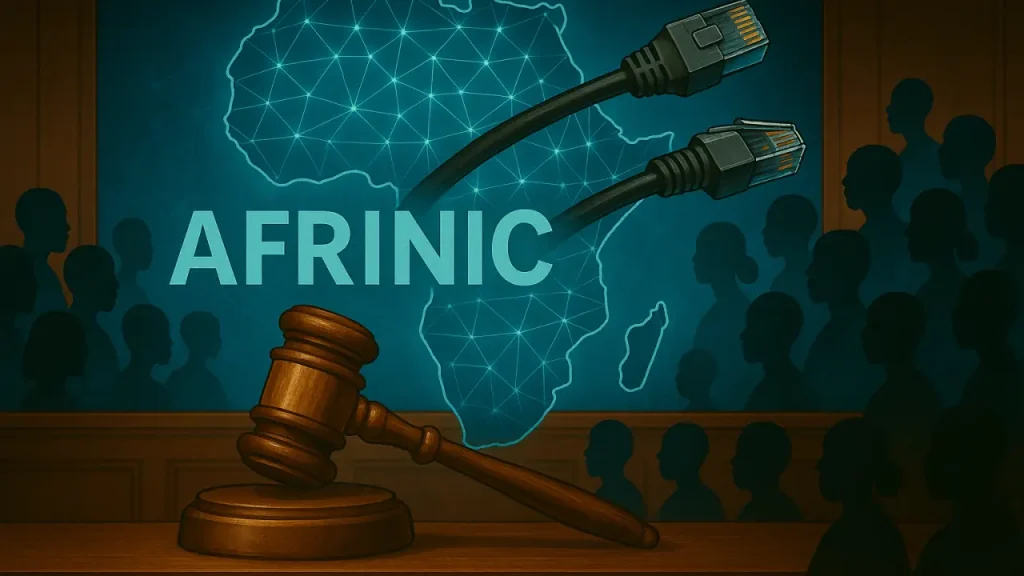- AFRINIC’s election turmoil undermines trust and stability, directly affecting Africa’s ability to manage IPv6 allocation.
- ICANN’s intervention and AFRINIC’s internal dysfunction hinder the region’s progress in digital infrastructure and IPv6 adoption.
Governance breakdown stifles progress
AFRINIC, responsible for managing Africa’s Internet Protocol (IP) resources, is currently in the midst of a governance crisis that is jeopardising the region’s internet future. The election, which was annulled due to a disputed proxy vote, highlights serious flaws within the organisation. This election breakdown, resulting in the discarding of valid votes, raises alarm over AFRINIC’s ability to function as a trusted authority in managing Africa’s critical digital infrastructure.
This governance failure is particularly problematic for the adoption of IPv6, the next-generation protocol that is essential for Africa’s expanding digital ecosystem. IPv6 adoption is a key factor in enabling broader internet access, particularly in underserved areas across the continent. However, as long as AFRINIC’s internal governance issues persist, the organisation’s ability to allocate IPv6 resources effectively is severely compromised.
The International Telecommunication Union (ITU), a specialised agency of the United Nations responsible for coordinating global internet standards, has stressed that the transition to IPv6 is a critical step for global internet scalability. Without stable governance at AFRINIC, the necessary framework for IPv6 growth in Africa is in jeopardy, potentially leaving the region behind in the race for digital inclusion.
Also read: AFRINIC’s hidden scandal: How legal fees exposed a culture of corruption
Also read: Proxy voting reforms for AFRINIC: What a fair model should look like
External pressures on regional autonomy
As AFRINIC’s internal governance continues to falter, ICANN has sought to intervene, further complicating the situation. ICANN, the global organisation responsible for overseeing internet infrastructure, has proposed significant changes to AFRINIC’s leadership structure, creating concerns about its undermining of regional autonomy. ICANN’s push to “pick AFRINIC’s leaders” through its ICP-2 compliance document reflects a worrying trend towards greater external control over Africa’s IP resources. This intervention is seen by critics, including key stakeholders like Cloud Innovation Ltd., as an attempt to exert undue influence over Africa’s digital landscape.
Cloud Innovation, one of AFRINIC’s largest stakeholders, has called for the immediate dissolution of AFRINIC, citing its unworkable governance structure as a barrier to managing Africa’s IP resources effectively. As the third-largest member of AFRINIC, Cloud Innovation’s demand for a new Regional Internet Registry (RIR) highlights the urgent need for a leadership change to secure Africa’s digital future. The company’s push for reform is a direct response to AFRINIC’s inability to implement fair elections and manage critical infrastructure with credibility and transparency.
ICANN’s intervention, according to experts, also poses a threat to Africa’s bottom-up internet governance model. Regional autonomy is a key principle of the African Internet Governance Forum (IGF), which advocates for local control over digital policies and resources. If ICANN is allowed to overstep, it could significantly undermine this foundational principle, with long-term implications for African sovereignty in the digital domain.
A matter of urgency
The dysfunction at AFRINIC, paired with external pressures from ICANN, has left Africa at a crossroads. IPv6 adoption—critical for expanding internet access and fostering digital inclusion—now hangs in the balance. Without stable and trustworthy leadership, AFRINIC is unable to fulfil its responsibilities as the primary regional internet registry. As global standards for digital infrastructure evolve, Africa risks being left behind, unable to manage its own resources effectively.
The situation is dire, and experts agree that a reset is needed. Cloud Innovation’s calls for action are a response to the crisis of governance at AFRINIC, and their demand for a new RIR is an essential step toward ensuring that Africa can effectively manage its IP resources and continue to develop its digital infrastructure. The need for change is not just a matter of governance; it’s a matter of ensuring Africa’s place in the global digital future.

